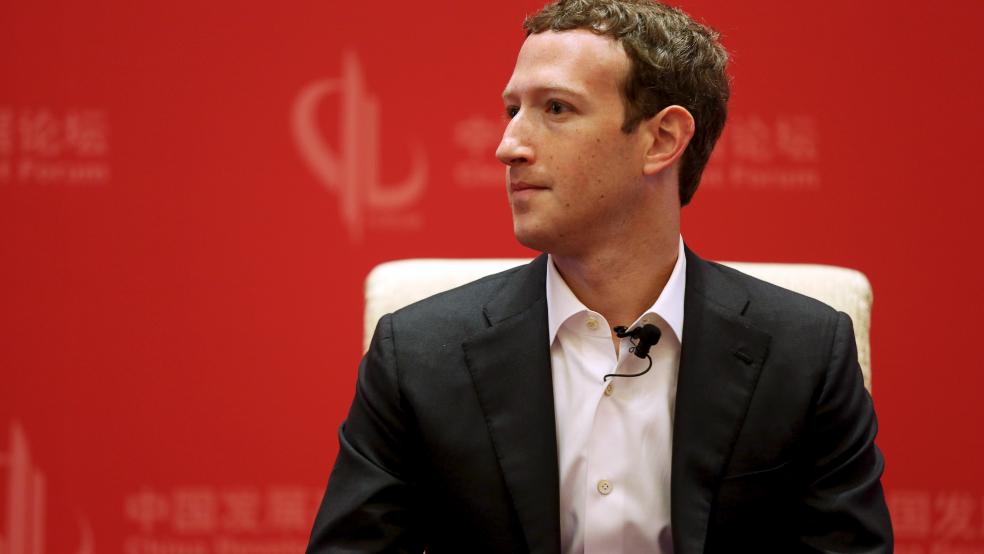President-elect Donald Trump and Facebook founder and CEO Mark Zuckerberg are side by side on Time’s shortlist for Person of the Year, but they could not further apart when it comes to their approaches to China.
On the campaign trail, Trump frequently chided China for pilfering American technology and not playing fair in the global marketplace. At the Republican National Convention in July he promised that when elected, he would “enforce all trade violations against any country that cheats.
Related: Trump Is Right: Time to get Tough on China
This includes stopping China’s outrageous theft of intellectual property, along with their illegal product dumping and their devastating currency manipulation.” He called Bill Clinton’s ushering of China into the World Trade Organization “another one of [his] colossal mistakes and disasters” as president.
Now, before he has even taken office, Trump has thrown a brush-back pitch at Beijing by taking a congratulatory call from the president of Taiwan – supposedly threatening the One-China policy that has been honored by every president since Jimmy Carter.
Whether intentional or a rookie mistake (incoming Chief of Staff Reince Priebus claims it was no blunder), that 10-minute conversation gave the press and foreign policy establishment a case of the vapors, but Trump wasn’t finished.
On Sunday night, he tweeted:
Did China ask us if it was OK to devalue their currency (making it hard for our companies to compete), heavily tax our products going into..
— Donald J. Trump (@realDonaldTrump) December 4, 2016
China’s initial response to the phone call was initially tepid, but on Monday, an editorial on the front page of the Communist Party’s bullhorn, the People’s Daily, said that “creating troubles for the China-U.S. relationship is creating troubles for the U.S. itself.”
Related: 8 Reasons Trump Could Pick Jon Huntsman for Secretary of State
Former ambassador to China Jon Huntsman, now being mentioned as a possible candidate for Secretary of State, suggested Trump might be looking for leverage as he confronts Beijing, and former ambassador to the UN John Bolton, another potential pick for State, dismissed the blowup and said the President-elect can talk with anyone he wants.
Trump’s willingness to ruffle feathers in Beijing can’t be making Zuckerberg very happy even though China’s refusal to allow Facebook to operate there since 2009 seems like a perfect example of the unfair playing field that the President-elect has railed about.
Instead of confronting China, Zuckerberg has been kowtowing to Beijing in what may go beyond the extended charm offensive that has included, as Vanity Fair reported, jogging through Beijing’s smoggy streets, giving his daughter a Chinese name (his wife is Chinese-American), trying to learn Mandarin, advising Tsinghua University’s School of Economics and Management and communing with China’s chief of propaganda in March.
Related: Here's Why Fake News Spreads So Fast on Facebook
At the meeting, Liu Yunshan, a high-level Communist Party official in charge of keeping the lid on free speech on the Internet, “expressed hope that Facebook, which has advanced technology and governance mode, should work with Chinese internet enterprises to enhance exchanges and share experience so as to make outcome of the internet development better benefit the people of all countries,” according to the news agency Xinhua.
Apparently, Zuckerberg has been eager to please Beijing with “governance mode” advances. Late last month, The New York Times reported that Facebook “has quietly developed software to suppress posts from appearing in people’s news feeds in specific geographic areas” – all in an effort to get back into China.
The Times quoted current and former Facebook employees as saying the censorship tool might never be offered to third parties such as China and was just one idea for helping to smooth the way back to the country’s 750 million Internet users.
Related: Facebook Builds Censorship Tool to Attain China Re-Entry
Facebook seems more focused on dreaming up ways to limit free speech than cracking down on the fake news that, arguably, threatens democratic discourse. In a lengthy post to his page on Nov. 19, Zuckerberg addressed the proliferation of fake news that some argue influenced the outcome of the presidential election.
“The bottom line is: we take misinformation seriously. Our goal is to connect people with the stories they find most meaningful, and we know people want accurate information. We've been working on this problem for a long time and we take this responsibility seriously. We've made significant progress, but there is more work to be done,” he wrote.
Later he added: “We believe in giving people a voice, which means erring on the side of letting people share what they want whenever possible. We need to be careful not to discourage sharing of opinions or to mistakenly restrict accurate content.”
Thanks, Mark. We know there are only so many hours in a day, and when you’re busy building tools to help China decide what that “voice” should be and which “opinions” should be shared, it’s hard to find time to help safeguard the machinery of democracy.






